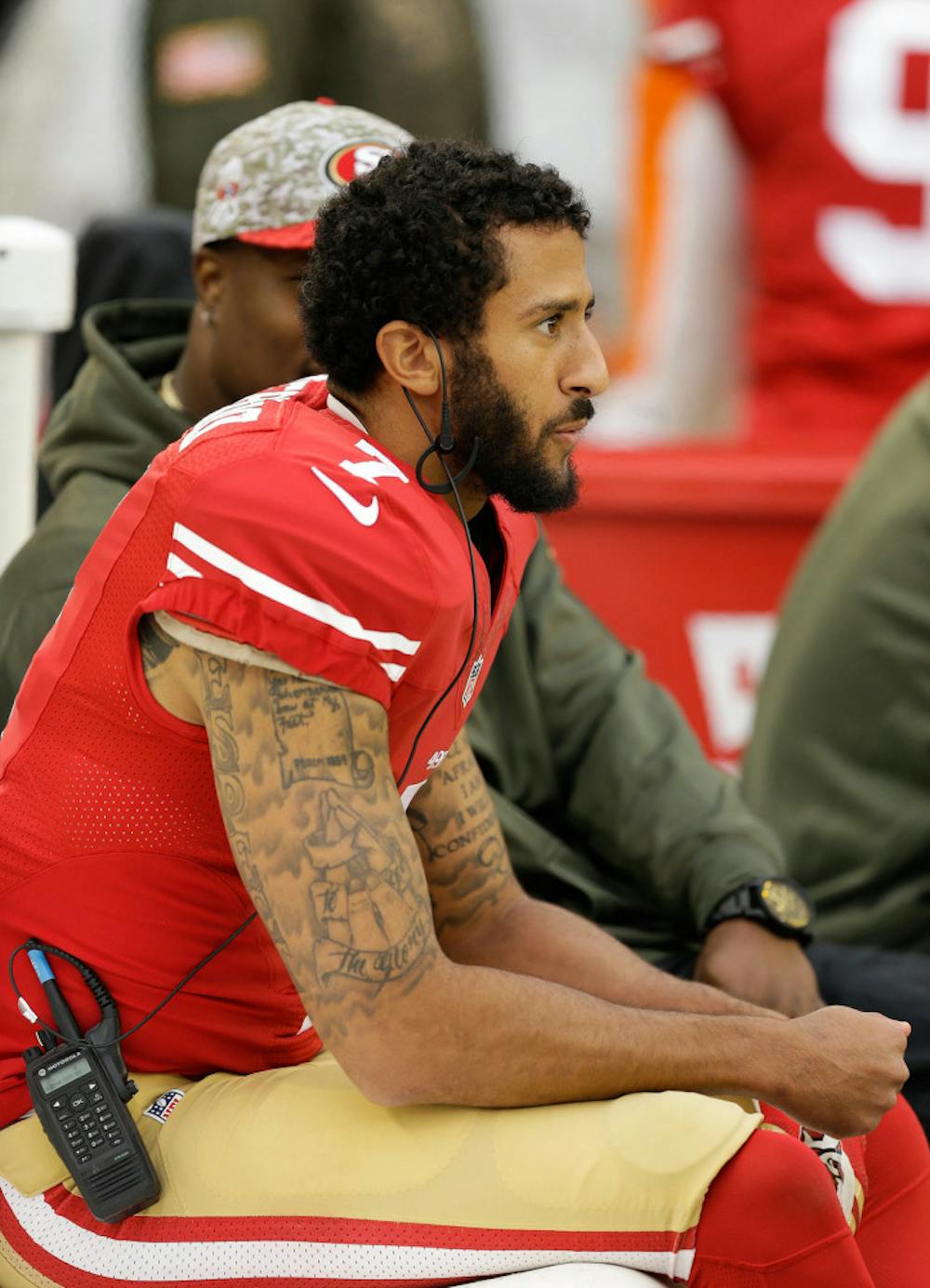You’re probably sick of hearing about Colin Kaepernick not standing for the national anthem.
I know I am.
You’ve been inundated with fireballs spewing from the mouths of both sides of the issue, at this point convinced that Kaepernick is either an ungrateful, pot-stirring rabble-rouser or the greatest athlete-turned-activist since Muhammad Ali.
He’s either an idiot who has absolutely no idea what he’s talking about and no reason to do what he did or a champion of civil rights who’s using his platform to try and change the country for the better. A hero or a villain.
And that’s a problem.
Because to really learn anything substantive from Kaepernick’s actions requires having a nuanced conversation about them.
To decide whether his actions are right or wrong and, more consequentially, whether they should be duplicated, requires viewing the situation with an open mind and listening — really listening — to what other people have to say.
Instead, our first reaction is to form an opinion and defend it at all costs.
And I’m not immune to it. Admittedly, I did the same thing at first. But it’s something that should be discouraged.
Instead, it permeates our Facebook timelines and Twitter feeds.
On one side, there’s Fox Sports’ Clay Travis calling Kaepernick a “stooge” and viral video sensation Tomi Lahren picking the low-hanging fruit by reminding us all, as someone often does in these situations, that if Kaepernick hates the situation in America so much, he “could just leave.”
On the other side, there’s sports media personalities like Sports Illustrated’s Richard Deitsch and ESPN’s Jemele Hill pointing to the hashtag #VeteransForKaepernick as evidence that not all veterans view this situation the same way, a declaration so obvious that it merits a sarcastic #Breaking hashtag to accompany it, no matter how heartwarming some of the Tweets are.
Point being, it’s just so easy to look at Kaepernick’s actions, make up your mind and tune out anyone saying anything that challenges you. Psychology calls it confirmation bias.
But when we do that, we learn nothing.
“People don’t realize what’s really going on in this country,” Kaepernick said after the game when asked why he did it.
“There are a lot things that are going on that are unjust. People aren’t being held accountable for. And that’s something that needs to change.”
I have very little experience with injustice in my personal life, to be honest.
However, just like anyone with a television or on social media, I’m constantly exposed to injustices and plights faced by others, usually minorities.
There’s no doubt they exist. And they’re issues worth talking about.
Most people would probably agree with that, but some will still point to the way he tried to get that message across as the problem.
As one of my colleagues wrote in a separate column on Wednesday, “It’s a personal choice. But you should choose to show respect.”
Unchecked reverence for the flag is also an issue worth talking about.
But instead of really discussing these subjects, our “talking” is relegated to picking sides and defending our opinions to the point where it’s as though the possibility of changing our minds is equal to death itself.
So yeah, I’m sick of hearing the same Kaepernick talking points over and over again from people unwilling to try to see the other side.
But it really shouldn’t be that way.
We can disagree, sure. I have my opinion on what Kaepernick did, and it may be different from yours.
But that doesn’t mean we shouldn’t at least try to understand each other.
Ethan Bauer is the assistant sports editor. Contact him at ebauer@alligator.org and follow him on Twitter @ebaueri.
FILE--In this Nov. 8, 2015, file photo, San Francisco 49ers quarterback Colin Kaepernick sits on the sideline during the second half of an NFL football game against the Atlanta Falcons in Santa Clara, Calif. A northern Nevada airport is getting an earful about a decorative display that, in part, highlights Kaepernick, a treasured product of the University of Nevada's football program who in recent days has been in the spotlight over his decision to sit down during the national anthem. (AP Photo/Ben Margot, File)






